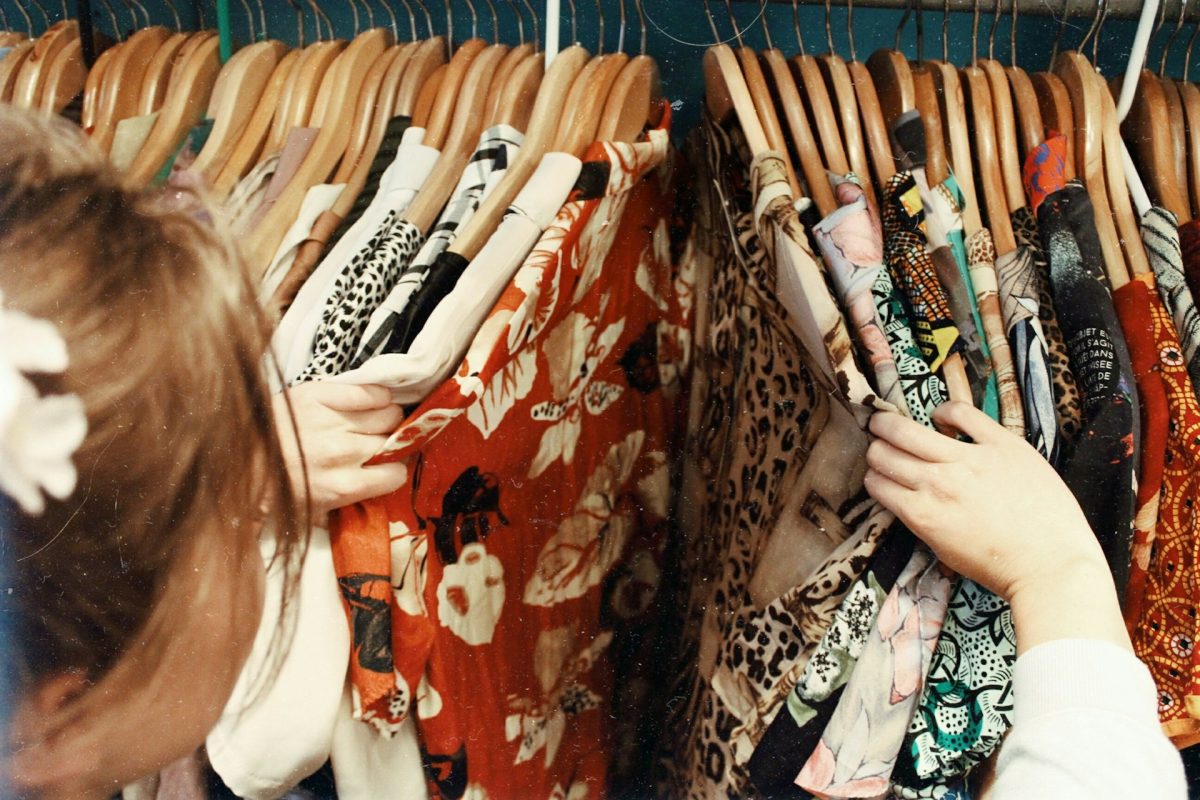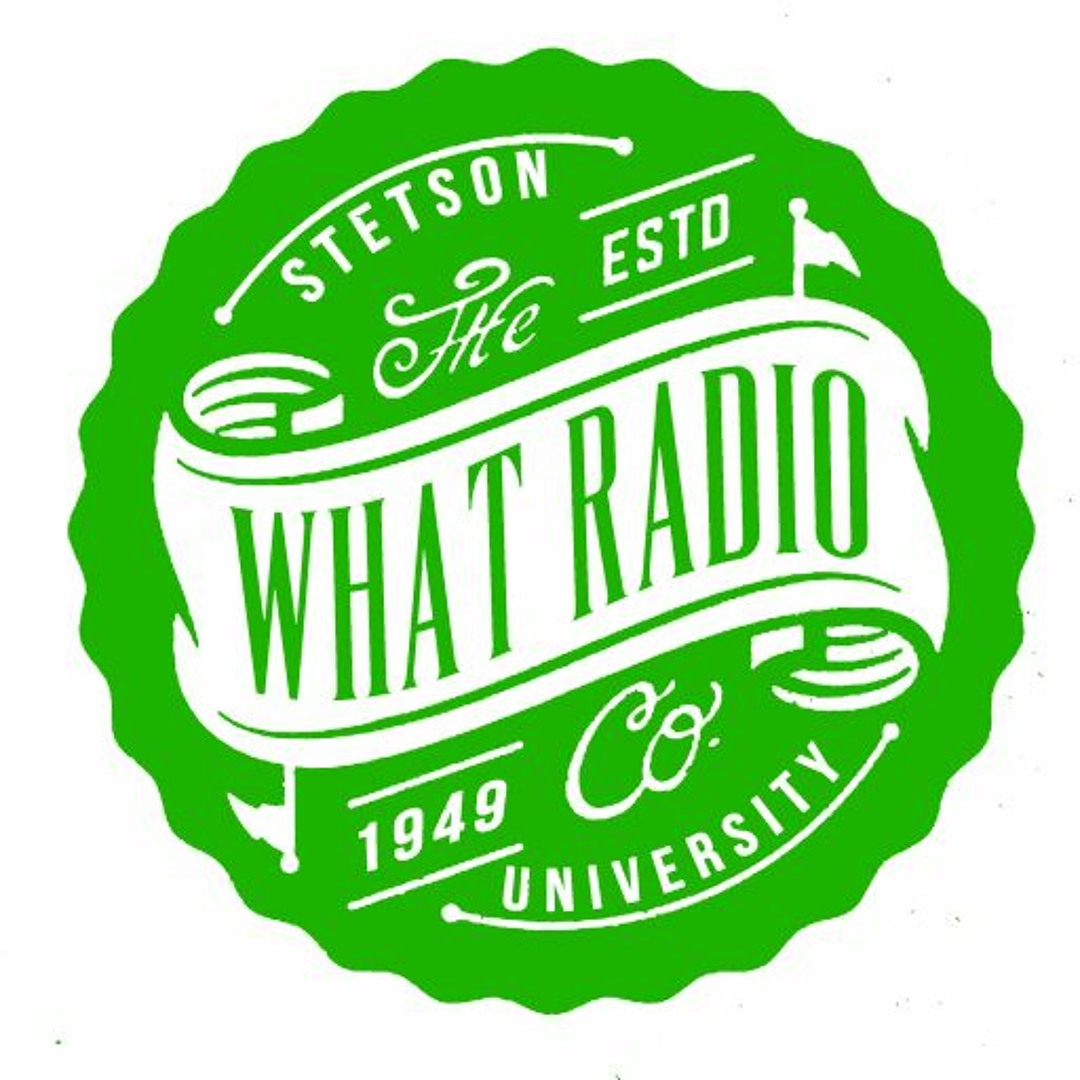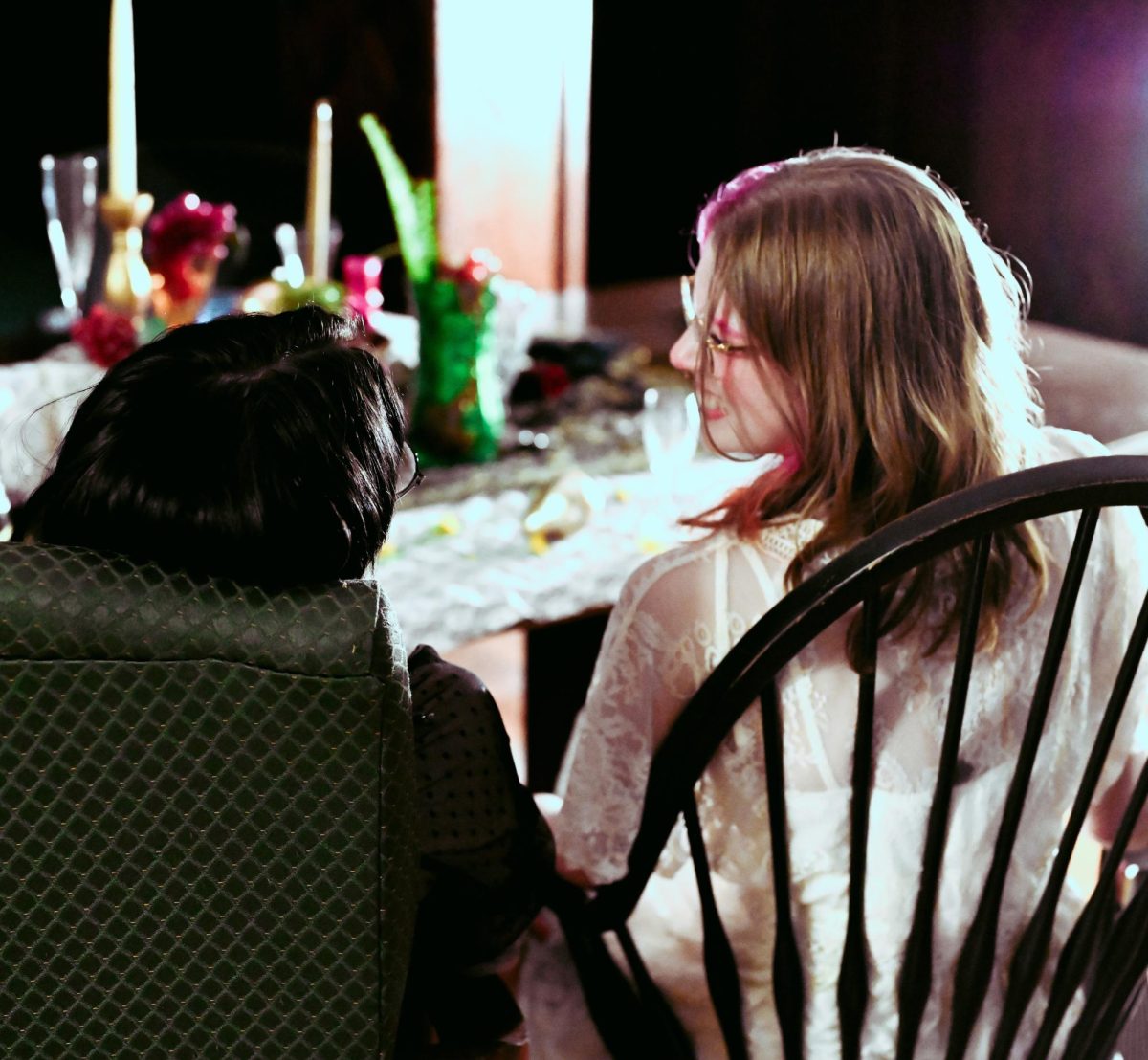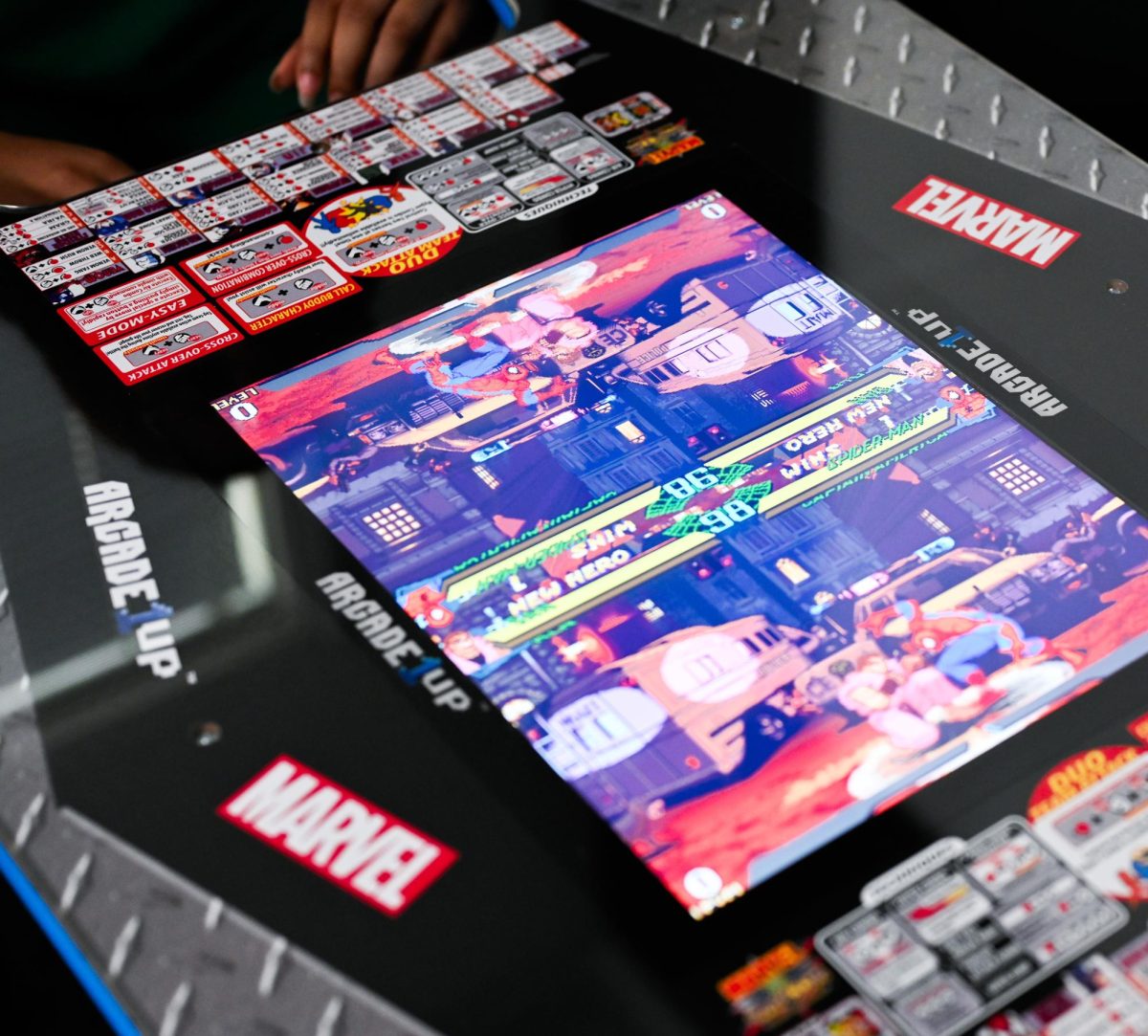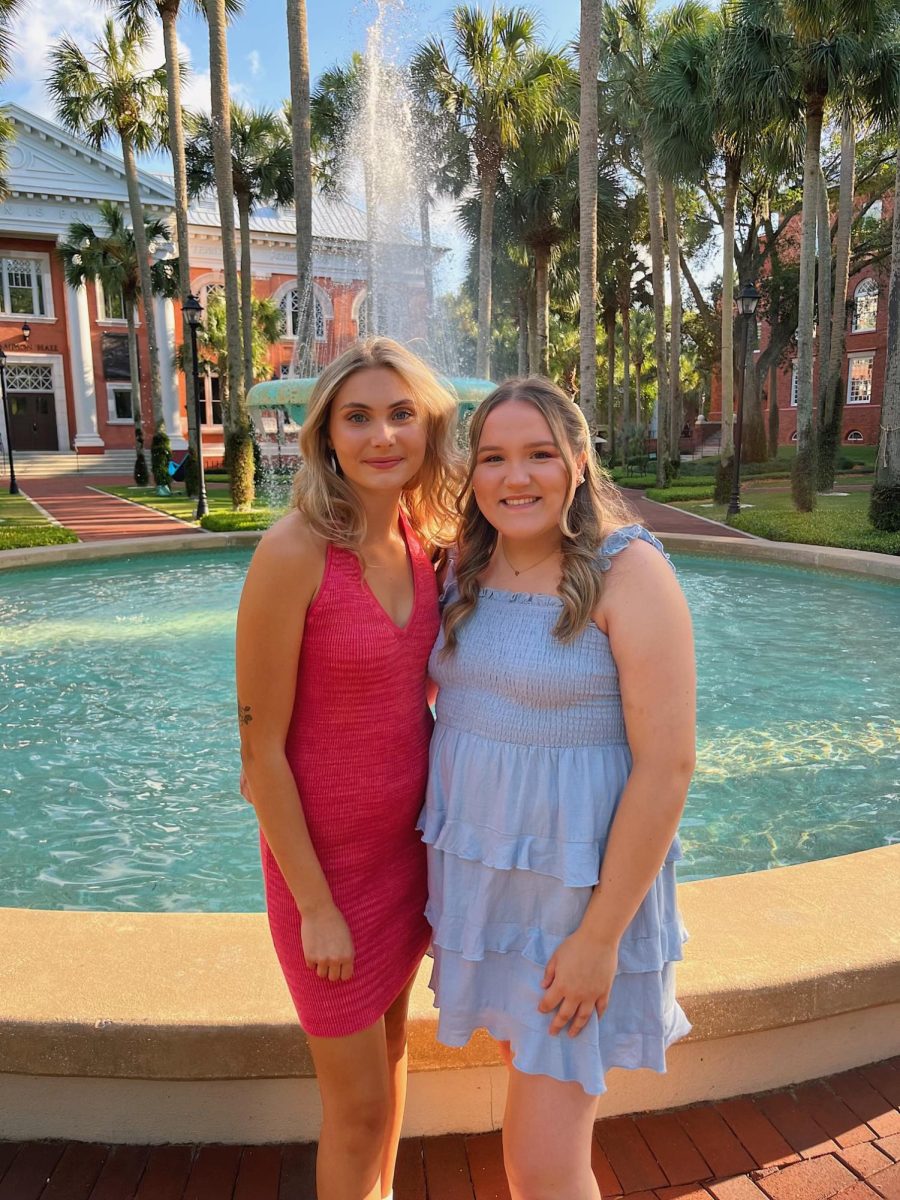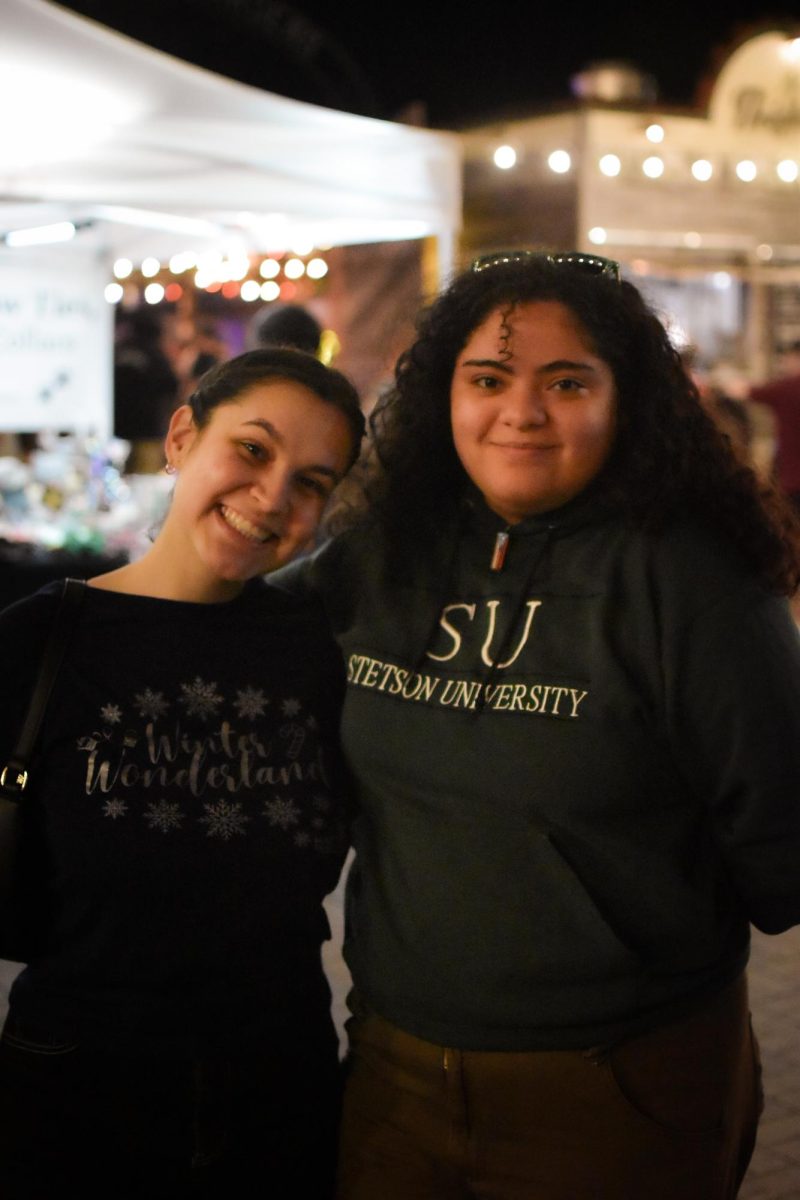Hey, Macklemore, can we go thrift shopping?
In Macklemore and Robert Lewis’ 2012 hit Thrift Shop feat Wanz, the pair rap about their thrifting experience when they “Only got $20 in [their] pocket[s].” Though a humorous piece of music meant for entertainment, this line still holds truth. Eleven years later, this song reflects the ever-growing cultural movement to thrift.
Throughout the fashion industry and social media, there is a growing movement against fast fashion. Companies such as Shein- known for their low prices- are being ridiculed for the low-quality products manufactured without regard for human and environmental factors.
With that being said, tuition is not cheap. Textbooks need to be purchased, and we still need to eat. But this doesn’t mean that we can’t have style. Despite these challenges, Stetson students are working to be smarter, more environmentally cautious shoppers through various ways of thrifting.
Take the Hatter Closet for example. Classmates Avery Brooks ’25, Darbi Robbins ’26 and Mary-Kate Hoang ’26 bonded during their Honors 102 project last year. This project is required for students of the Honors College, to prepare students to become agents of change who have the attitudes, knowledge and skills to collectively address the complex challenges facing our communities. These students started with a problem- the laundry left behind in residential halls. There were piles of laundry consisting of clothes that were just going to end up in the trash, never to be worn again.
“So me being into environmental science, I really wanted to get involved with hopefully reducing clothing waste,” Brooks explained. “It puts a lot of toxins into our environment. Microplastics from clothing get into the environment when it gets into landfills.”
In addition to helping the environment and cleaning up the fashion industry, they wanted to be able to give back to the local community as well. With the help of Stetson Director of Community Engagement Kevin Winchell, they partnered with the Neighborhood Center West Volusia, a nonprofit that works to feed the hungry and tackle the core issues that lead to unhoused individuals.
“They were happy to work with us and they accept clothing donations, but also, more importantly, funding for their projects for the homeless,” Brooks said enthusiastically. “We wanted to help them out.”
The team worked with permission from Residential Living and Learning (RL&L) to gather the leftover clothes in the laundry rooms. Holding a donation day was yet another way the students brainstormed to gather more clothes. Additionally, they received access to the golf cart for transportation, washed the clothes and marketed their store. On September 5 and 6, Avery, Darbi and Mary-Kate were officially the creators of a successful pop-up thrift store. Hatter Closet took place in the Carlton Union Building (CUB) where most of their customer base were Stetson students. $1500 was the grand total raised for the Neighborhood Center. The money raised went to a good cause, and the pop-up shop helped foster a sense of sustainability on campus.
“I bought a pair of L.L. Bean running shorts,” Kristine Lynn Rodriguez ’25 said. “I am so elated to hear that these clothing items have an opportunity to be loved once more and that they aren’t going to waste.”
Brooks shared that they hope to make the Hatter Closet an annual event. The team is working on setting up a potential long-term plan to keep it running after they graduate. With continued partnership from RL&L, they also worked with Kevin Winchell who works in community engagement, to ensure the project can be run each year.
The Hatter Closet isn’t the only way Stetson students are changing the sustainable fashion game. Nathan Boyd ’24 is another example. Boyd is the Chief Executive Officer (CEO) of his own small business, Sicc Printing. He specializes in commercial printing and embroidery services.
Now a college senior, Boyd works to repurpose vintage clothes from thrift stores as an environmentally cautious option for his customers. He told me it all started when he was a high school senior. He started selling sneakers, vintage clothing and other collectibles he found at thrift shops that he could flip for a profit.
“Basically, I started as soon as high school ended, like graduation, next week, I did an event,” Boyd said. “Then that entire summer just kept doing events. And then I went to Stetson.”
A year into his Stetson education, he made his first shirt. He started like many young entrepreneurs, in his garage, where he only had four color presses (meaning four different ink colors are used to create a range of printable colors). Now, Boyd is purchasing a screen printing company in Daytona called USA Printing. With the acquisition of this company, Boyd will have an automatic press which will allow him to produce 20 shirts per hour.
As a small-business owner, Boyd focuses on his environmental impact. Popular thrift shop, Goodwill reports that it offers many opportunities for the clothes to be resold, although roughly five percent of donated clothes are directly sent to landfills. Boyd saves these clothes from thrift shops that don’t get bought up.
“What we like to do is we like to repurpose those things,” Boyd nodded while saying. “So getting a vintage blank from the 90s and having nothing on it or having something already on it, then printing over it. Offering that to customers is great because it’s just, it’s more unique.”
According to the European Parliament, the printing industry is responsible for about 10% of the global carbon dioxide gasses that get emitted. Boyd made his business more eco-friendly by changing the traditional plastisol inks to water-based inks. Water-based inks are Polyvinyl chloride (PVC) free, meaning they contain dangerous chemical additives including phthalates, lead, cadmium and organotins.
“It’s better for the shop environment basically because less chemicals are used to make the ink,” Boyd said. “[We’re environmentally friendly by using] water-based ink, vintage blanks, reusing old blanks or just shirt garments.”
Additionally, Boyd pays extra attention to the fabrics that they print on. Polyester is made of plastic and is not biodegradable. According to the U.S. Environmental Protection Agency, when this fabric is sent to a landfill, the toxic materials used during the production process leach into the soil and contaminate the water of the local population by these water bodies.
“Polyester is like the worst,” Boyd said. “We try and stay away from that because of how bad it is. But you know, the customer wants what the customer wants, we can only advise them so far, but [we use more] organic materials like bamboo, hemp and different recycled [fabrics].”
These Stetson students from the Hatter Closet and Sicc Printing are working towards the improvement of both the environment and the community– and they’re not alone. You don’t need a project or a business to decrease your ecological footprint. By reusing clothes, thrifting and helping out students like Avery, Darbi, Mary-Kate and Nathan, we can come together to make Stetson a better place, one environmentally sourced clothing item at a time.
Sicc Printing
Instagram: @siccprinting
Website: www.siccprinting.com


